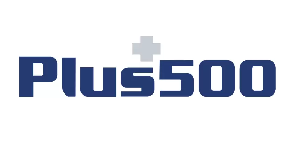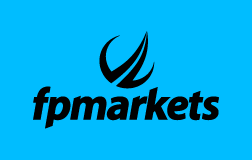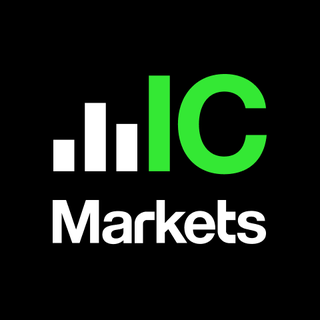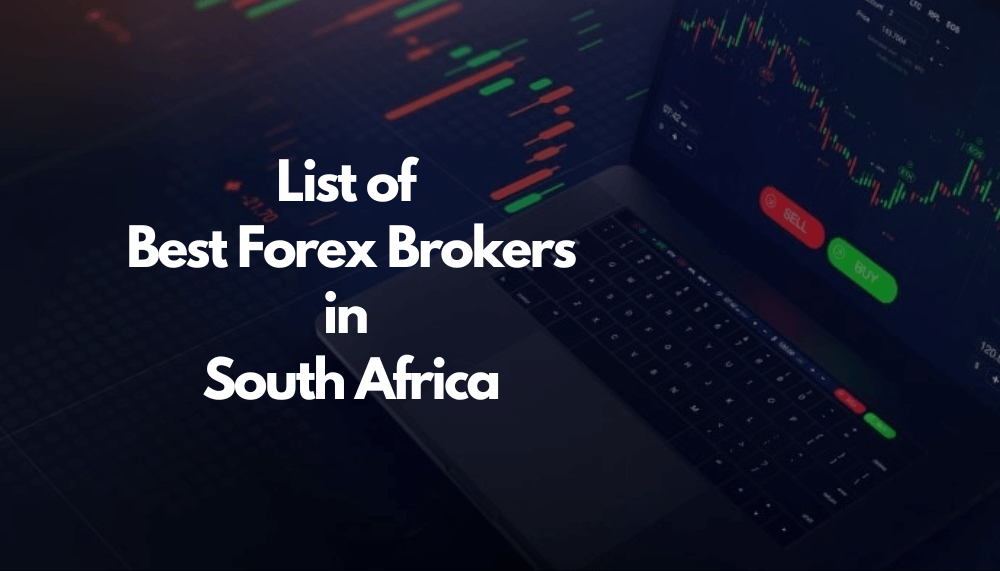When it comes to forex trading in South Africa, selecting the best broker can significantly impact your experience. With numerous options available, identifying the best forex brokers in South Africa for 2026 may appear daunting. However, there is no need for concern; we have conducted thorough research to showcase the top forex brokers in South Africa with FSCA regulation that are trusted by many local traders.
Whether you are in search of a broker with minimal deposit requirements or one that provides sophisticated trading platforms, it is crucial to evaluate what aligns best with your trading style.
The brokers we endorse are all regulated by the FSCA (Financial Sector Conduct Authority), which guarantees their compliance with local regulations. Furthermore, each broker presents distinct features, such as low trading fees, attentive customer support, and hassle-free deposits and withdrawals in ZAR. In this guide, we will outline what you can anticipate from the best FSCA regulated forex brokers in South Africa, enabling you to commence trading with assurance.
Why Choosing the Right Forex Broker Matters?
When selecting a top forex broker in South Africa, it is essential to consider several key factors. The broker you opt for will significantly influence your trading experience, making it crucial to make a well-informed decision.
Significance of Oversight by the Financial Sector Conduct Authority (FSCA)
The first point to confirm is whether the broker is regulated by the FSCA (Financial Sector Conduct Authority). This oversight guarantees that the broker functions within legal parameters and provides a safe trading atmosphere for traders in South Africa.
When a broker is regulated by the FSCA, it indicates adherence to stringent protocols designed to safeguard your funds. Steering clear of unregulated brokers is essential, as engaging with them can pose significant dangers, including the substantial risk of losing your capital without any protective measures.
Key Considerations While Choosing FSCA Regulated Brokers
1. Trading Platforms
After verifying the broker’s regulatory status, the next step is to examine their trading platforms and associated costs. It is advisable to select a FSCA regulated broker that provides a diverse selection of platforms, such as MetaTrader 4 or 5, recognized for their robust features and user-friendliness. The trading platform serves as the interface for managing all your trades. Consequently, it should be reliable and easy to use.
2. Trading Fees and Commissions
It is important to monitor trading expenses. Certain brokers may promote low spreads while imposing high commissions or other concealed charges. Ensure that the fee structure is transparent and aligns with your financial plan to avoid unexpected costs later on.
Additionally, it is advisable to evaluate the broker’s customer service. You should select a trusted South African forex broker that provides prompt assistance when required, whether via live chat, telephone, or email.
3. ZAR Accounts
If you are trading in South Africa, an important aspect to consider is whether the broker provides ZAR accounts. This can significantly simplify your deposits and withdrawals, as you will be able to conduct transactions in your local currency without the concern of conversion fees.
Brokers that help ZAR accounts save both time and money by making the process more efficient. This is particularly beneficial for South African traders who wish to handle their funds locally with as little inconvenience as possible.
Top Forex Brokers in South Africa
1. AvaTrade

AvaTrade is the best forex broker in South Africa, recognized for its robust regulation, which includes oversight by the FSCA (Financial Sector Conduct Authority). Established in 2006, AvaTrade has earned a strong reputation for providing a diverse array of trading instruments, such as forex, commodities, cryptocurrencies, and stock CFDs.
South African traders are attracted to AvaTrade due to its intuitive platforms, like MetaTrader 4/5 and the AvaTradeGO mobile application, facilitating trading on both desktop and mobile devices. Its dedication to offering educational resources and customer support has contributed to its status as one of the leading forex brokers in South Africa for both novice and seasoned traders.
Advantages and Disadvantages of AvaTrade
Advantages
- Supervised by various financial regulatory bodies
- Offers a comprehensive selection of trading tools and instruments
- Delivers customer support 24 hours a day, five days a week, in 14 different languages
- Facilitates trading on mobile devices through the AvaTradeGO application
Disadvantages
- Imposes inactivity fees following a period of three months without use.
- The desktop version of AvaOptions may exhibit sluggish performance and lack user-friendliness.
- Due to regulatory limitations, it does not permit US traders.
- It is not regulated by the FCA, which could affect the perceived fairness of the market.
AvaTrade Fees and Commissions
AvaTrade sets itself apart regarding fees and commissions by offering commission-free trading on most of its accounts. It indicates that traders are solely accountable for the spread, which begins at 0.9 pips for major currency pairs like EUR/USD.
Additionally, there are no fees for deposits or withdrawals, simplifying account management for South African traders. However, it is important to note that inactivity fees apply if an account is not utilised for more than three months, amounting to $50.
The FSCA regulated forex broker also offers competitive leverage of up to 1:400, which is particularly attractive for more experienced traders seeking greater market exposure. Furthermore, AvaTrade accommodates various payment methods and permits ZAR accounts, enhancing convenience for local traders.
2. Plus500

Plus500 is a leading provider of Contracts for Difference (CFDs), enabling trading in stocks, foreign exchange, commodities, indices, and additional assets. The company functions through various subsidiaries, each of which is authorized and regulated by financial authorities within its respective jurisdiction.
In South Africa, Plus500AU Pty Ltd is acknowledged as a Financial Services Provider by the FSCA. This regulatory framework guarantees that Plus500 complies with rigorous rules aimed at safeguarding retail clients.
The platform is distinguished by its user-friendly interface, sophisticated charting tools, and real-time alerts, which empower traders to make well-informed decisions efficiently. Furthermore, Plus500 provides a smooth transition between demo and real-money trading modes, enabling users to test their strategies prior to investing capital. These attributes, along with strong regulatory adherence, position Plus500 as a favored forex broker for traders in South Africa.
Advantages and Disadvantages of Plus500
Advantages
- An accessible platform for users
- Minimal fees and narrow spreads
- Supervised by a leading financial services authority
- A range of tools and features is created to help traders make informed decisions.
Disadvantages
- Limited educational materials are available for novices
- Limited research instruments are accessible for experienced traders
Plus500 Commissions and Fees
Plus500 primarily generates revenue through the “market spread” and does not impose commissions on trades. Nevertheless, traders should be cognizant of potential additional fees that may be applicable. An overnight funding fee is either added to or deducted from your account when maintaining a position beyond a specified duration.
Furthermore, this reliable forex broker in South Africa levies a currency conversion fee of up to 0.7% on trades involving instruments that are denominated in a currency different from that of your account’s base currency. While Plus500 absorbs the majority of payment processing fees, there may be rare instances where you could face charges from your payment issuer or bank when transferring funds to and from your Plus500 account.
Importantly, Plus500 does not impose any fees for deposits or withdrawals, and there are no commissions on trades. If you don’t log in to your account for three months, a $10 inactivity fee will be charged each month. These fee structures enhance Plus500’s standing as a cost-effective trading platform in South Africa.
3. FP Markets

FP Markets is a well-known CFD and forex broker that has provided traders with access to worldwide markets since 2005. Regulated by the FSCA in South Africa, FP Markets is preferred by South African traders due to its low spreads, diverse platform options, and excellent customer support.
The broker is well-respected for its ECN pricing model, which provides tight spreads and rapid trade execution, making it an excellent choice for both novice and experienced traders. With the availability of MetaTrader 4, MetaTrader 5, cTrader, and Iress, FP Markets presents a comprehensive array of tools designed to assist traders in achieving success, establishing itself as one of the top brokers in South Africa.
Advantages and Disadvantages of FP Markets
Advantages
- Narrow spreads beginning at 0.0 pips.
- Rapid execution times
- High leverage possibilities reaching up to 1:500
- Extensive selection of tradable assets
Disadvantage
- No exclusive trading platform available
- Educational resources are scarce for novices
- Fees for withdrawals might be applicable
FP Markets Fees and Commissions
When engaging in trading activities with FP Markets in South Africa, one can anticipate low fees along with a flexible cost structure. The Raw account provides spreads that begin at 0.0 pips, accompanied by a commission of $3.50 for each lot traded. In contrast, the Standard account allows for commission-free trading, with spreads commencing at 1.0 pips.
The minimum deposit required is $100 (approximately R1823), and there are no fees associated with deposits; however, certain withdrawal methods may incur minor charges. With leverage available up to 1:500 and a diverse selection of tradable instruments, including over 70 forex pairs, FP Markets guarantees a cost-effective and efficient trading environment for traders in South Africa.
4. XM

XM is a well-known forex broker globally that has become popular in South Africa due to its robust regulatory framework and diverse trading options. XM is regulated by the FSCA, which guarantees compliance with the legal standards for safe and secure trading within the country.
A major feature that sets XM apart is its low minimum deposit of just $5, which makes it easy for new traders to get started. Additionally, this FSCA regulated forex broker offers access to the widely used MetaTrader 4 and 5 platforms, ensuring a smooth trading experience across desktop, web, and mobile devices.
With an extensive selection of trading instruments, including 57 forex pairs and CFDs on stocks, indices, and commodities, XM continues to be a preferred choice for South African traders seeking a trustworthy forex broker in South Africa.
Advantages and Disadvantages of XM
Advantages
- A diverse selection of financial instruments
- Compatible with MetaTrader 4 and MetaTrader 5
- Narrow spreads beginning at 0.6 pips
- Protection against negative balances
- Rapid execution speeds
- Adaptable leverage options reaching up to 1:1000
Disadvantage
- Restricted access to cryptocurrencies
- Fees for inactivity might be imposed
- Limited features on proprietary trading platforms
XM Fees and Commissions
XM provides commission-free trading on its Micro and Standard accounts, with spreads beginning at 1 pip for major currency pairs. For reduced costs, the XM Ultra-Low account features spreads starting as low as 0.6 pips. There are no fees for deposits or withdrawals, which is a significant advantage for traders handling numerous transactions.
However, XM imposes an inactivity fee if no trades are executed for more than three months, although it is a reasonable fee of 85 ZAR. With competitive spreads, versatile account options, and high leverage of up to 1:1000, XM delivers exceptional value for both novice and seasoned traders in South Africa.
5. IC Markets

IC Markets is a globally recognized forex and CFD broker known for its reliability, affordable trading conditions, and a wide range of trading tools. Founded in 2007, IC Markets has become a preferred forex broker in South Africa, offering access to popular platforms such as MetaTrader 4, MetaTrader 5, cTrader, and TradingView.
Although IC Markets is not regulated by the FSCA, it holds licenses from other reputable regulators like ASIC and CySEC, which enhances its credibility as a reliable option. This broker is particularly suitable for traders seeking tight spreads, rapid execution, and a strong platform for algorithmic trading.
Advantages and Disadvantages of IC Markets
Advantages
- A diverse selection of trading instruments
- Narrow spreads and competitive pricing
- Regulated by several leading authorities
- Rapid execution speeds with minimal delay
Disadvantage
- A high minimum deposit requirement of $200.
- The live chat support could benefit from enhancements to achieve quicker response times.
IC Markets Fees and Commissions
IC Markets provides trading on its Standard account without any commissions, with spreads beginning at 0.8 pips. For those traders seeking even lower expenses, the Raw Spread account offers spreads starting from 0.0 pips, accompanied by a commission of $7 for each standard lot round turn.
There are no fees for deposits or withdrawals, and IC Markets does not impose any inactivity fees, establishing itself as a highly competitive broker for South African traders in search of cost-effective trading options. Moreover, IC Markets grants access to a diverse array of assets, which includes forex, stocks, indices, commodities, and cryptocurrencies.
How to Start with a Forex Broker in South Africa?
Step 1: Select a Forex Broker
Initially, it is essential to select a forex broker. Look for the best forex brokers in South Africa that are overseen by the FSCA to ensure the security of your funds. The FSCA regulated forex brokers include AvaTrade, Plus500, XM, and FP Markets.
Each broker offers distinct advantages, so it is advisable to choose one that aligns with your requirements regarding trading platforms and expenses.
Step 2: Initiate Your Trading Account
Once you have selected an FSCA regulated broker, navigate to their website and click on the “Open Account” button. You will be prompted to complete a registration form that includes essential information such as your name, email address, and phone number.
Subsequently, you will choose whether you prefer a demo account or a live account.
Step 3: Submission of Verification Documents
Before the full activation of your account, it is necessary to provide certain verification documents. The majority of brokers will request the following:
- Identification verification (passport or driver’s license).
- Verification of residence (a utility bill or bank statement dated within the last 3 months).
These documents assist in validating your identity and ensuring the security of your account.
Step 4: Fund Your Account
Once your account has been verified, it is time to add funds. Many brokers offer a range of deposit options, which include bank transfers, credit cards, and e-wallets. Ensure that you verify whether your South African forex broker supports ZAR accounts, allowing you to deposit and withdraw in South African Rand, thus avoiding currency conversion fees.
Step 5: Choose Between Demo and Live Accounts
If you’re just starting in forex trading, it’s recommended to start with a demo forex account. It allows you to practice without risking real money. Once you feel confident, you can transition to a live account, where you will be trading with actual funds. At this stage, it is essential to remain aware of your strategy and the associated risks.
Frequently Asked Questions
Q. Is Forex regulated in South Africa?
A. The primary regulatory body in South Africa is the Financial Sector Authority of South Africa (FSCA). All brokers providing services in the Forex market are required to be registered and licensed by the FSCA.
Brokers without a license are forbidden from servicing clients in South Africa. This regulatory body diligently supervises adherence to financial regulations and safeguards the interests of traders.
Q. How does FSCA regulation protect forex traders in South Africa?
A. The Financial Sector Conduct Authority (FSCA) mandates that licensed brokers safeguard client funds by keeping them separate from the company’s operational assets.
Routine inspections and audits of brokers are conducted to deter fraud and the misappropriation of client funds. Investors have the option to file complaints with the FSCA, which reviews disputes and implements actions to uphold the rights of traders.
Additionally, a compensation system exists to address any infringement of client rights.
Q. Do you pay tax on forex trading in South Africa?
A. Income earned through Forex trading in South Africa is liable for personal income tax. The tax rate is progressive, potentially reaching up to 45% depending on the trader’s income level. Traders are required to declare their earnings to the South African Revenue Service (SARS).
Conclusion
Embarking on your forex trading journey in South Africa can be simple if you adhere to the appropriate steps. Selecting a regulated forex broker in South Africa is essential for safeguarding your funds, and confirming that they provide features such as ZAR accounts can enhance the convenience of your trading experience.
The process of opening an account includes fundamental steps such as registration, submitting verification documents, and funding your account through methods like bank transfers or e-wallets.
For those who are new to trading, utilizing a demo account is an intelligent way to practice prior to engaging in live trading. With the right FSCA regulated forex broker and strategy, you will be adequately equipped to enter the forex market.

